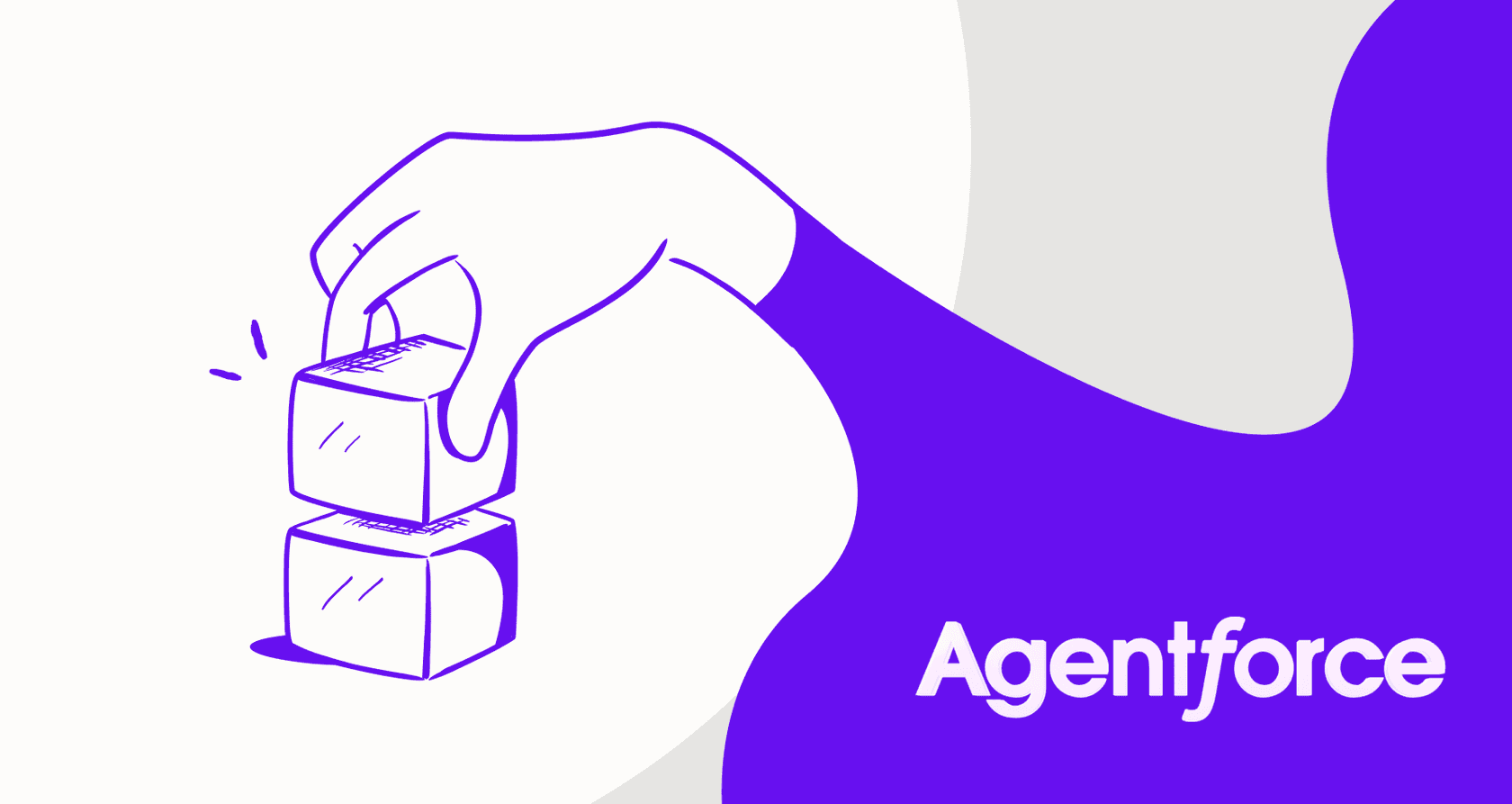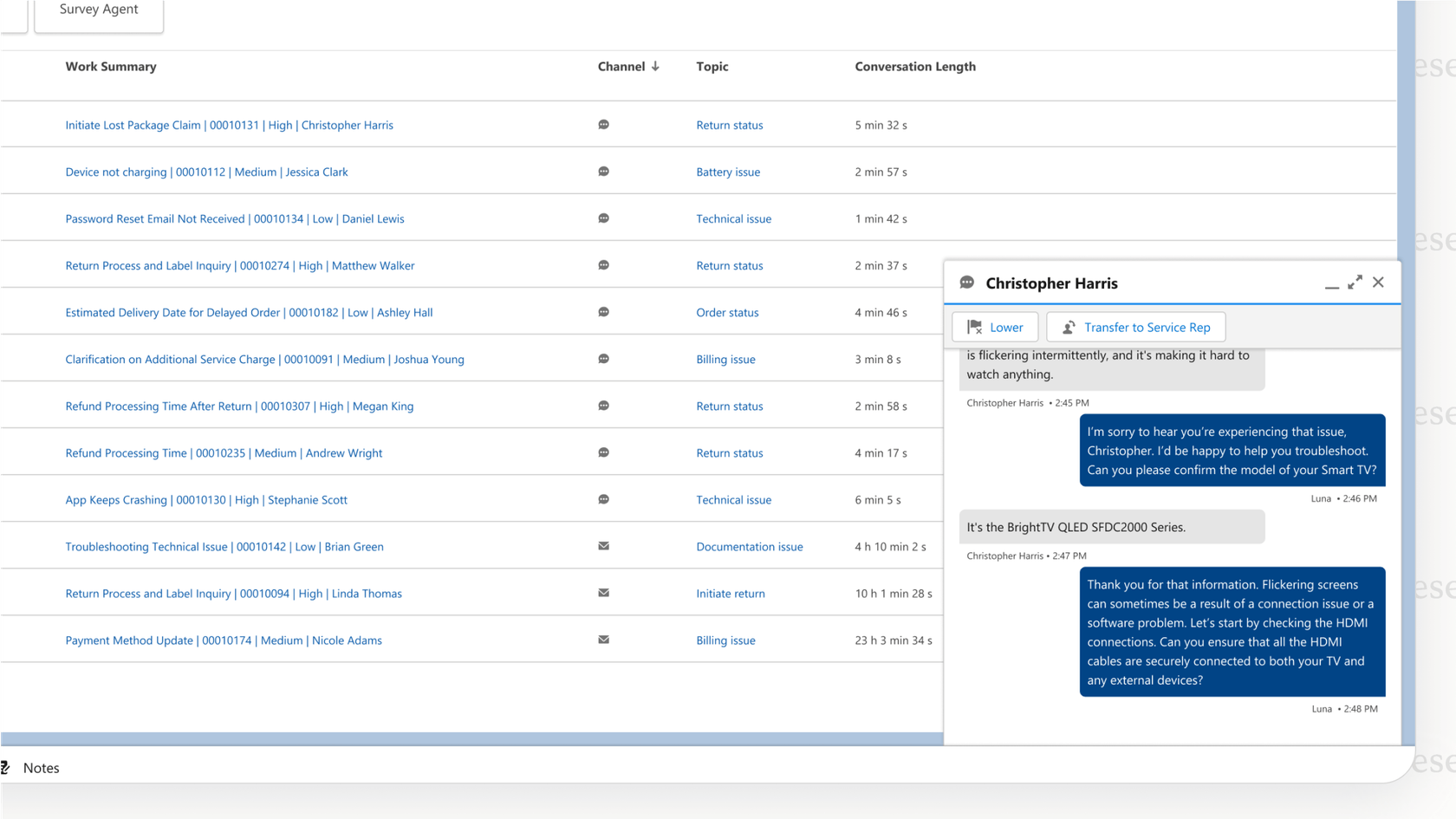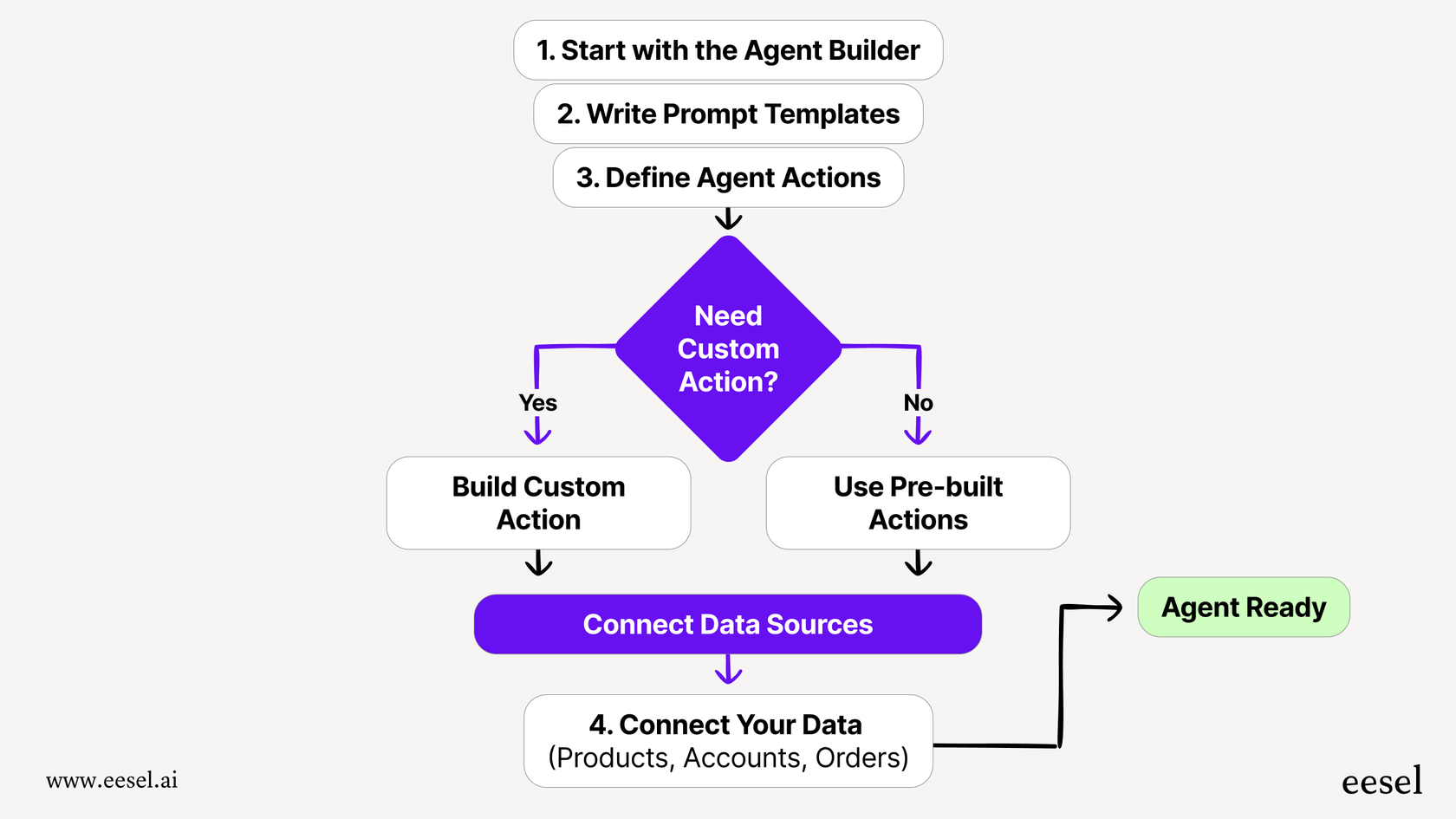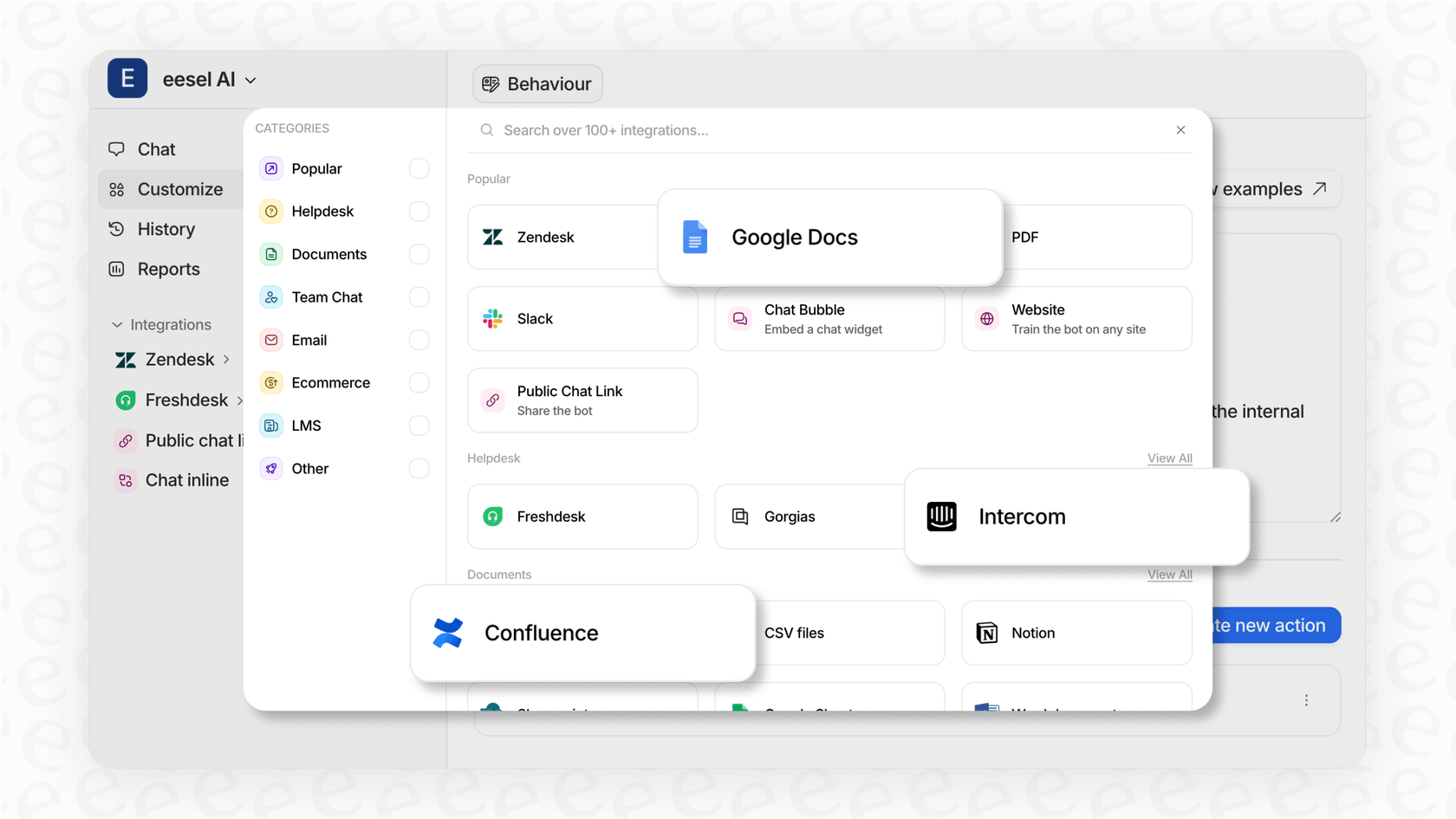
Let's be honest, a good product recommendation can be the difference between a happy customer and a missed sale. We've all been there, getting a suggestion so spot-on it feels like magic. In today's world, that's what people expect: smart, instant recommendations that get them. Salesforce Agentforce is one of the big names promising to deliver this, with a powerful AI platform built to create autonomous agents inside the Salesforce ecosystem.
But what does it actually take to make it work for product recommendations? This guide is a no-fluff look at what Agentforce can do, how you set it up, and, maybe most importantly, the limitations you should know about. We'll get into its capabilities, the complexity involved, and help you decide if it’s the right move for your business in 2025.
What is an Agentforce product recommendation?
First things first, Salesforce Agentforce isn't just another chatbot spitting out canned responses. It's a full-on platform for building AI agents that can supposedly think, reason, and act on their own. The idea is to go beyond simple scripts and have an AI that can handle tasks with multiple steps.
The brain behind it is the Atlas Reasoning Engine, which helps the AI agent understand what customers are really asking for. Instead of just looking for keywords, it tries to figure out the intent. So, if a customer asks something a bit vague like, "I need a gift for my mom who likes gardening," the agent can actually process that, connect it to your business data, and come back with some decent ideas.
The Agentforce product recommendation agent is just one way to use this tech. You configure it to access your product catalogs, customer purchase histories, and any promo data you have stored in Salesforce. Its whole job is to serve up personalized suggestions, find clever cross-sells, and spot upsell opportunities. It can do this either by talking directly to a customer or by giving tips to your sales and service reps.

Setting up an Agentforce product recommendation
Getting an Agentforce product recommendation agent live isn't as easy as flipping a switch. It’s a powerful tool, but that power comes with a setup process that demands a solid understanding of the Salesforce platform.
Here’s a bird's-eye view of what’s involved:
-
Start with the Agent Builder: This is your main hub for creating and tweaking agents. You’ll begin here by defining what the agent is supposed to do.
-
Write Prompt Templates: This is where you give the agent its personality and marching orders. You write prompts telling it what its job is, like, "Recommend the top 3 products based on the customer's past orders and known style."
-
Define Agent Actions: Next, you have to set up the specific tasks the agent can perform. Salesforce gives you some pre-built actions like "Recommend Products to Upsell", but getting them connected and working correctly can be a bit technical. If you need a custom action, you'll probably have to build it yourself.
-
Connect Your Data: The agent is only as smart as the information it can see. You need to make sure it’s linked to the right Salesforce objects, think Products, Accounts, and Order History, so it has the context to make good recommendations.

The main thing to know is that this isn't a task for a Salesforce newbie. To do it right, you’ll likely need a dedicated Salesforce admin or developer, especially for custom actions or more complex logic. It’s a real investment of time and resources before you get a single recommendation out of it.
Use cases and benefits of Agentforce product recommendation
Once you’ve put in the work to get it set up correctly, an Agentforce agent can bring some real value. It’s not just about answering questions; it’s about actively helping your business grow and making the customer experience smoother.
Here are some of the main upsides:
-
Boost Average Order Value (AOV): By suggesting relevant upsells ("Hey, people who bought this also loved...") and cross-sells ("Don't forget the batteries for that!"), the agent can help increase the size of each purchase.
-
Improve the Customer Experience: No one likes to wait. An AI agent offers instant, 24/7 help that feels personal, making customers feel heard and taken care of.
-
Lighten Your Team's Workload: When routine recommendation questions are handled automatically, your human agents can focus on more complicated sales chats or tough support issues where a personal touch really matters.
-
Increase Conversion Rates: By helping customers find the right products faster, the agent cuts down on the friction in the buying process. A smoother path from "I'm just looking" to "checkout complete" usually leads to more sales.
You can picture it playing out in a few ways:
-
Retail: A customer is chatting on your website and types, "What shoes would go with this navy dress?" The agent looks at their past purchases in Salesforce and suggests a pair of gold strappy heels and a matching clutch.
-
SaaS: Someone is on your pricing page and asks, "Which plan is best for a startup with 5 people?" The agent analyzes their needs and points them to the right tier, explaining the features that would help them most.
-
Telecom: A customer asks, "I'm off to Europe for two weeks, what's the best data roaming package?" The agent pulls up their account details and travel dates to suggest the most cost-effective option.
Key limitations and challenges of Agentforce product recommendation
While Agentforce is powerful within its own world, its approach has some major drawbacks you should think about before jumping in.
The complicated setup
As we mentioned, the setup process is no walk in the park. It means clicking through multiple screens, getting your head around Salesforce jargon like "prompt templates," and often needing a developer to stitch it all together. This makes it tough to get started and means it takes a long time to see any results.
In comparison, a tool like eesel AI is built to be self-serve. You can connect your helpdesk and other knowledge sources in a few clicks and have a working AI agent up in minutes, not weeks. It’s made for teams that want to move quickly without needing a technical crew on standby.
Your knowledge is disconnected and stuck in silos
Agentforce works best with data that's already living happily inside the Salesforce CRM. But let's be realistic, where is all your best product info really stored? Your technical specs are probably in Confluence, user guides are in Google Docs, marketing blurbs are on your website, and real-world customer solutions are buried in old support tickets in Zendesk or Freshdesk. Agentforce has a hard time pulling all that scattered information together.

This is where eesel AI really stands out. It was designed from the start to connect all your different knowledge sources. It can learn from past support chats, Confluence pages, and Google Drive folders all at once, giving its recommendations a depth and accuracy that a CRM-only tool just can't match.
No safe way to test
How can you be sure your new Agentforce agent is ready for customers? There isn't a great built-in feature to test how it performs on real questions before you unleash it. You’re basically launching it and crossing your fingers, which can be a big risk for your customer experience.

eesel AI solves this with a simulation mode. You can test your AI on thousands of your past support tickets in a safe environment. You'll see exactly how it would have answered real customer questions, giving you a clear forecast of its performance before it ever interacts with a live customer. This lets you build, test, and launch with confidence.
| Feature | Salesforce Agentforce | eesel AI |
|---|---|---|
| Setup Time | Days to weeks; requires technical expertise. | Minutes; truly self-serve. |
| Knowledge Sources | Primarily Salesforce CRM data. | 100+ integrations (Help desks, Confluence, Google Docs, etc.). |
| Pre-Launch Testing | Limited to basic testing. | Powerful simulation on historical data. |
| Workflow Control | Rigid, requires admin configuration. | Granular control over which queries to automate. |
Understanding Agentforce product recommendation pricing
If you’re trying to find out how much Agentforce costs, good luck. Salesforce pricing is famously complicated and rarely transparent. Agentforce isn't a product with a clear price tag on a website.
It’s usually bundled into expensive, enterprise-level subscriptions like the Einstein 1 Editions or sold as a pricey add-on. The only way to get a real number is to book a call with a sales rep and go through their whole discovery process. This makes it hard to budget, opens the door to hidden fees, and can lock you into long-term contracts that are difficult to escape.
This is a world away from eesel AI's transparent and predictable pricing. Plans are based on usage, and you’re not charged per resolution, so you won't get a surprise bill after a busy month. You can start with a flexible monthly plan and cancel anytime, which is a much lower-risk way to get started with AI.
Is Agentforce product recommendation right for you?
So, what's the bottom line? An Agentforce product recommendation agent can be a seriously powerful tool, but it comes with a few big "ifs." If your business runs almost entirely on Salesforce, if you have the technical team to build and maintain it, and if you have a big budget that can handle opaque pricing, then it might be worth a look.
For most businesses, though, the complexity, the reliance on siloed data, and the confusing pricing make it a tough sell. If you're looking for a faster, more flexible, and more transparent solution, it’s a good idea to check out alternatives built for how modern companies actually work: across lots of different tools and platforms.
Get started with smarter AI product recommendations in minutes
If you want powerful AI without the headache and high cost of a platform like Agentforce, eesel AI is the perfect alternative.
You can go live in minutes, not months. You can bring together all your scattered knowledge from every tool you use. You can test confidently with powerful simulations. And you can do it all with pricing that actually makes sense.
Stop fighting with complicated setups and siloed data. See how easy it is to deploy an AI agent that gives accurate, helpful product recommendations from day one. Start your free eesel AI trial today.
Frequently asked questions
An Agentforce product recommendation agent is an AI agent built on Salesforce's platform that uses the Atlas Reasoning Engine to understand customer intent. It accesses your product catalogs, customer histories, and promo data to provide personalized suggestions, cross-sells, and upsell opportunities. It can interact directly with customers or assist sales and service reps.
The setup process for an Agentforce product recommendation is complex and requires a solid understanding of the Salesforce platform. It involves using the Agent Builder, writing detailed prompt templates, defining agent actions (which may require custom development), and connecting relevant Salesforce data objects. It typically demands dedicated Salesforce admin or developer resources.
Implementing an Agentforce product recommendation can significantly boost your average order value through intelligent upsells and cross-sells. It improves customer experience by offering instant, personalized help 24/7, lightens your team's workload by automating routine queries, and increases conversion rates by guiding customers to the right products faster.
Key limitations include a complicated and time-consuming setup process, a strong reliance on data already within Salesforce CRM leading to siloed knowledge, and a lack of robust pre-launch testing capabilities. This makes it difficult to integrate external data and confidently deploy without risking customer experience.
Salesforce Agentforce product recommendation pricing is generally opaque and not publicly listed. It's often bundled into expensive, enterprise-level subscriptions like Einstein 1 Editions or sold as a costly add-on. Obtaining a quote typically requires engaging directly with a Salesforce sales representative, which can lead to complex contracts.
While Agentforce works best with data already within the Salesforce CRM, it struggles to pull together information scattered across external sources like Confluence, Google Docs, or Zendesk. This limitation means it might miss valuable context for recommendations that reside outside the Salesforce ecosystem.
Share this post

Article by
Kenneth Pangan
Writer and marketer for over ten years, Kenneth Pangan splits his time between history, politics, and art with plenty of interruptions from his dogs demanding attention.







